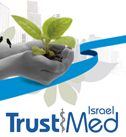Non-Hodgkin lymphoma is cancer from lymphocyte white blood cells, which are supposed to help fight infection in the body.
This cancer can develop in the bone marrow, thymus, lymph nodes, digestive tract and spleen, among others. It includes all types of lymphomas but excludes Hodgkin’s disease, which is lymphoma involving the Reed-Sternberg cell or B lymphocyte.
NHL can be categorized into at least 30 types and can either be slow-growing, low-grade (indolent) or fast-growing, high-grade (aggressive) types. This cancer is further classified depending on the cell types involved, and the two main cells are:
- T cells or T-lymphocytes, and
- B cells or B-lymphocytes, which are involved in most cases of NHL.
Before a non-Hodgkin lymphoma treatment plan can be created, meticulous and advanced diagnostic procedures must be undertaken by a team of medical experts. Among these procedures include:
- Review of medical records and history
- Physical exam
- Lumbar puncture
- MUGA scan
- Lab tests
- Imaging tests
- Biopsy
- Flow cytometry
Accurate diagnostics are necessary since the condition differs from one person to another, and thus, an individualized treatment strategy is needed.
During the treatment, the patient will still undergo some diagnostics to monitor tumor sizes and responsiveness to treatment, among others. The treatment plan is also modified when necessary.
You will have a team of non-Hodgkin lymphoma specialists to care for you, answer your questions and monitor your progress. This team usually includes oncologists and surgeons. Depending on your condition, these medical experts may also be a part of your team:
- Naturopathic clinician
- Rehabilitation therapist
- Dietitian
- Chiropractor
- Pain management practitioner
- Pastoral care provider
- Mind-body therapists
These experts can coordinate with each other to monitor the treatment and improve or adjust the plan as needed.
In some cases, you will have a registered nurse as your personal care manager who will be there for you from the start of the treatment until it is completed.
To complement the high quality care of your medical team and ensure the best plan for your condition, you will undergo some advanced treatments as deemed necessary. These include radiation therapy, chemotherapy, targeted therapy and stem cell transplantation.
Moreover, supportive care services will be provided to ensure that despite your condition and the treatment procedures you’ll undergo, you will still be able to enjoy and maintain high quality of lifestyle.
Some of these care services include the following:
- Pain management
- Mind-body medicine
- Nutrition therapy
- Naturopathic medicine
- Chiropractic care
- Survival support
- Oncology rehabilitation
- Spiritual support
Medicine will always be a part of any treatment plan, and for non-Hodgkin lymphoma patients, there are recommended drugs to either help treat the condition or to ease certain side effects. Some of these medicines include Prednisone, Cyclophosphamide, Methotrexate, Bortezomib and Rituximab.
Like any other cancer, the effects of non-Hodgkin lymphoma in one person may differ from other people, and thus, it is necessary to have an individualized treatment plan. Constant monitoring should also be performed by the team of medical experts to ensure that the patient is in the right treatment plan making adjustments as deemed necessary.
